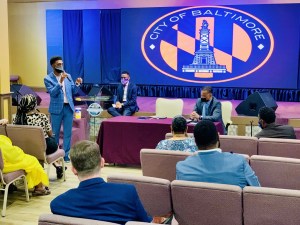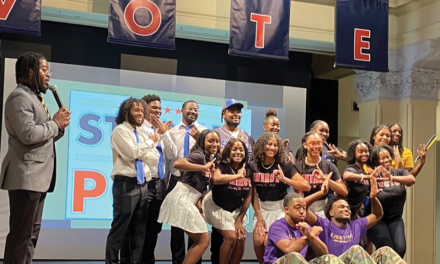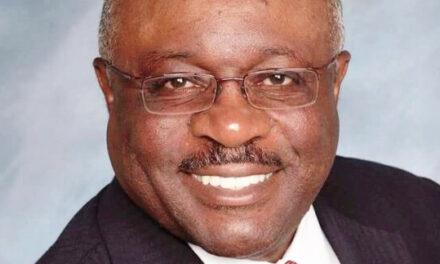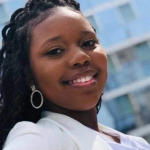
(Photo courtesy of the Mayor’s Office)
By Nadine Matthews
Special to the AFRO
Religious organizations are a force within local communities, always going above and beyond religious instruction and services to serve their communities. Churches, synagogues and mosques regularly offer extracurricular activities for children, food and clothing for those in need and criminal justice interventions, just to name a few. In the Black community, it was faith based leaders who were very much the fulcrum of the Civil Rights Movement. However, religious organizations are often placed on the back burner by local government, their needs and values being overlooked.
Baltimore Mayor Brandon Scott has made a deliberate effort to change that. Marvin James, the mayor’s senior advisor and director of Faith Outreach, spoke to the AFRO about Mayor Scott’s focus on improving the city’s relationship with its churches, synagogues, and mosques.
James, who is a member of Baltimore’s Destiny Christian Church, said he wants to use his position to, “Make sure that the community that produced me is getting the necessary resources and information to survive and have a voice within the administration. From the beginning of this administration wanted to make sure that the faith organizations in every neighborhood are well represented, and more importantly, have some type of liaison to help elevate their issues and concerns.”
James acts as the liaison for the Christian community while Rebecca Mark and Musaa Abdurrahman are liaisons for the Jewish and Muslim communities, respectively. Here, James points out, Mayor Scott has done something unprecedented. “A Muslim liason has never happened before,” James said. “We wanted to ensure there was also representation on that front.”
Functioning similarly to the Interfaith Outreach that is part of Governor Larry Hogan’s Office of Community Initiatives, the Office of Faith Outreach falls under the umbrella of the Office of Neighborhood Safety and Engagement. One of the explicit aims of this office is to comb at violence by strategically interfacing with all community organizations that regularly interact with the public.
Faith leaders in the community were vocal about the lack of inclusion they felt, spurring Scott to make a concerted effort to improve the level of responsiveness from the Mayor’s Office. “When we would go to minister’s conferences or visit synagogues and mosques, we were hearing that there was a disconnect. The faith leaders expressed a feeling that those put in positions to assist them, applied no real effort,” recalled James, who, as Scott’s campaign manager, would often accompany him on his visits to local organizations.
“It was,” said James, “Like they were just checking off boxes.”
The faith leaders James said, “Told us they simply wanted to be kept aware of what was going on in Baltimore, and when there were resources available whether it was grants or money they could compete for.”
Mayor Scott meets with faith leaders on a quarterly basis, but since the pandemic started, they had to find another way. “Because of COVID we’ve not been able to but we’ve brought ‘information bearers’ so to speak, who represent over one thousand churches in Baltimore City, who act as information portals.”
Under James’ direction, liaisons “make sure that regardless of the religion, these organizations feel included and more importantly, pull them inside of what is happening in the mayor’s office.” They also want to make it easier for faith-based organizations to efficiently get the help they need with day to day issues so that they can more effectively execute their mission of helping their congregants and the immediate community. “States James, “For example, if there is trash in the area near their building, we provide a liaison who is going to assist them with that issue.”
In Baltimore, religious organizations are often a driving force in disseminating information about public health and other issues. Most recently, James said, “the religious institutions have been extremely helpful in disseminating information about issues such as COVID and violence prevention.” However, faith leaders also felt they were misunderstood to a great extent in terms of the value that they regularly bring to the communities they serve, and the greater Baltimore community in general. “They said it was just as important they be made aware of when they could be of assistance,” stated James. “These organizations are always looked at as looking for help, but the reality is that churches, synagogues, and mosques have always been self-sufficient entities from their inception and as helpful to their communities as we’ve been helpful to them.”
Help us Continue to tell OUR Story and join the AFRO family as a member – subscribers are now members! Join here!
The post Mayor’s Office bridges gap with religious organizations appeared first on AFRO American Newspapers .











